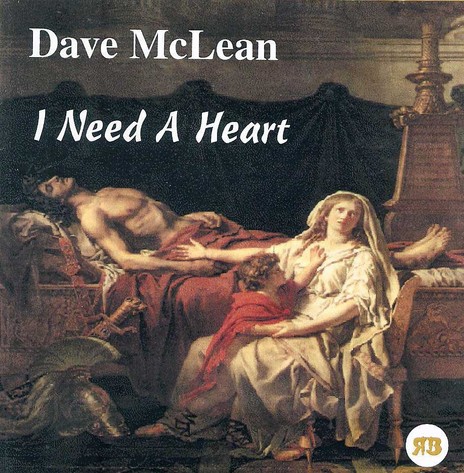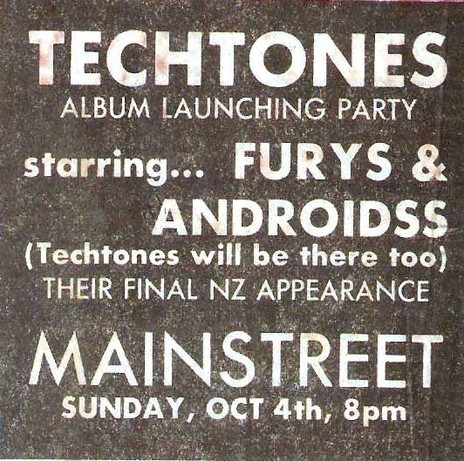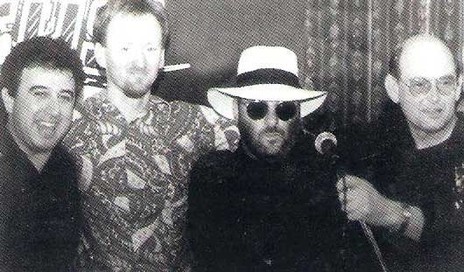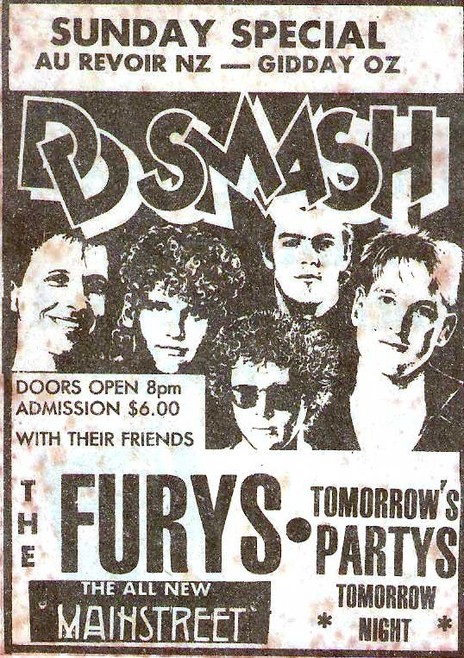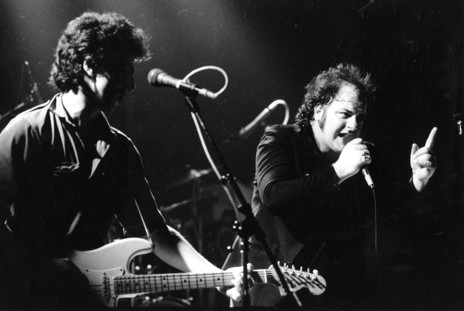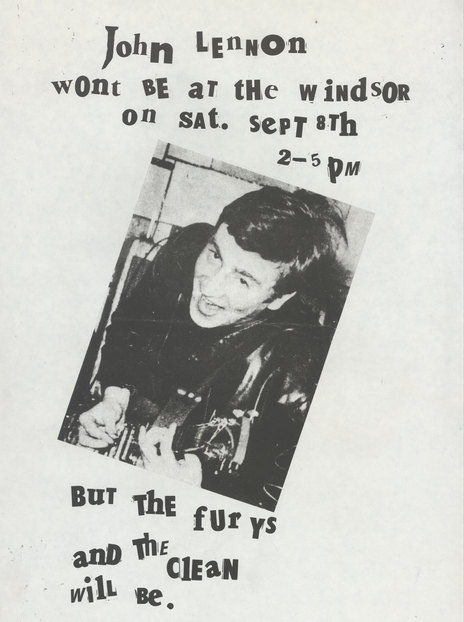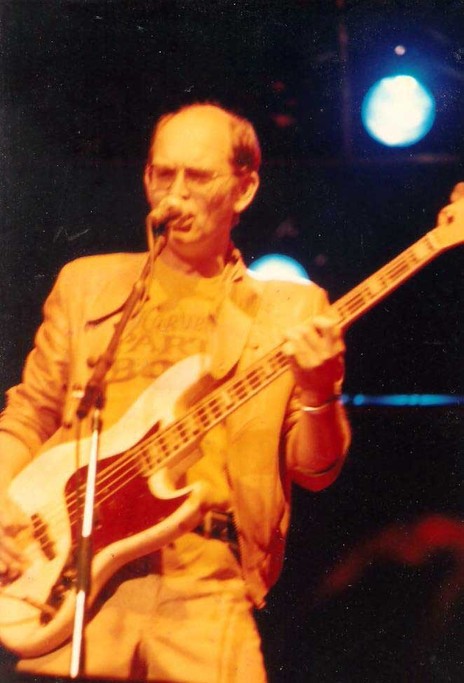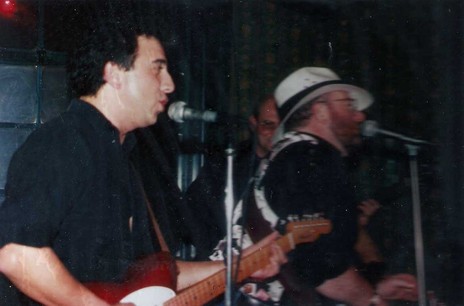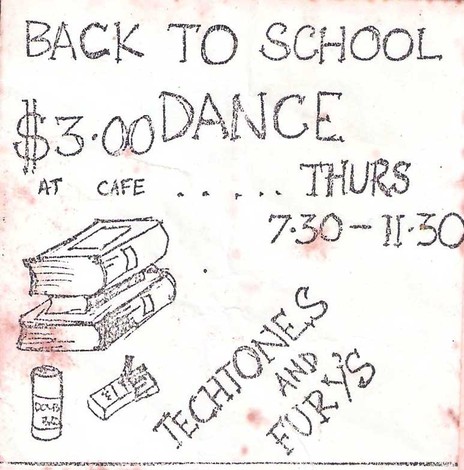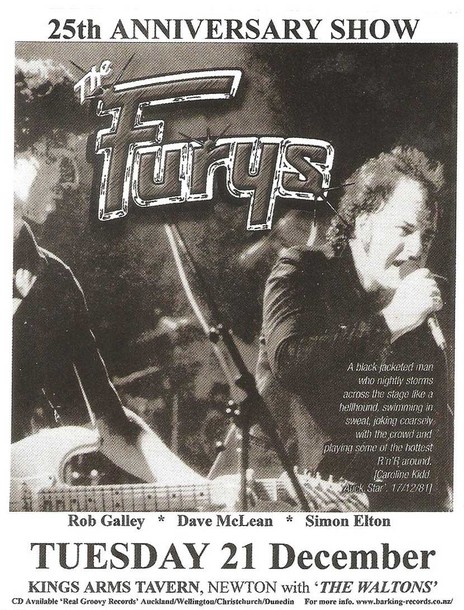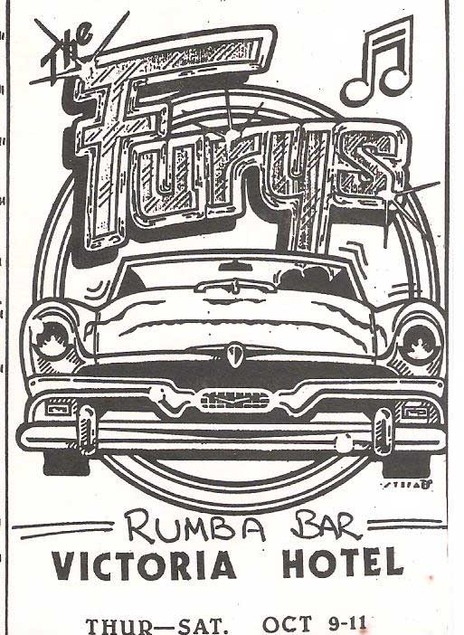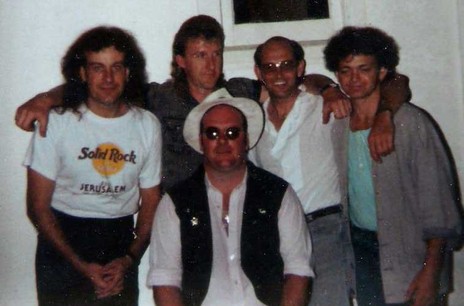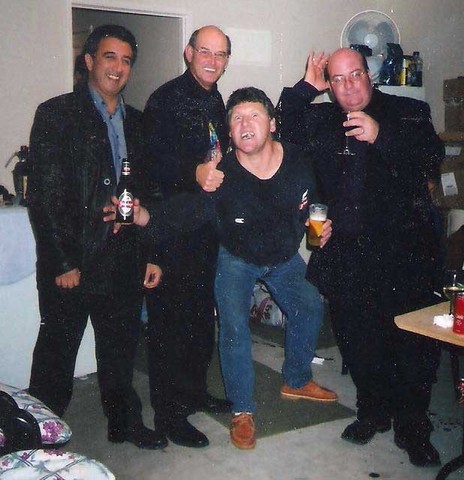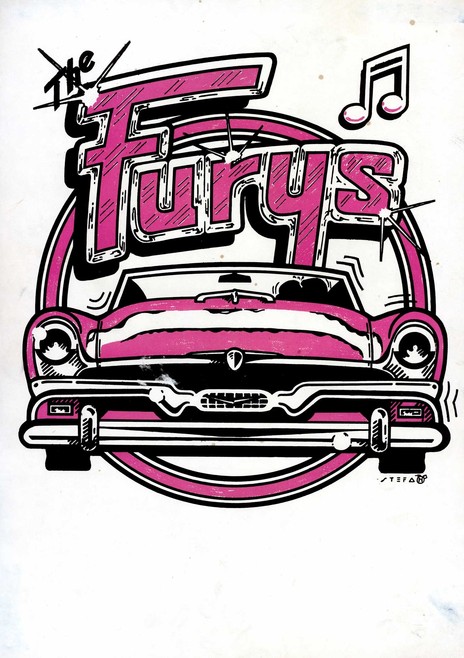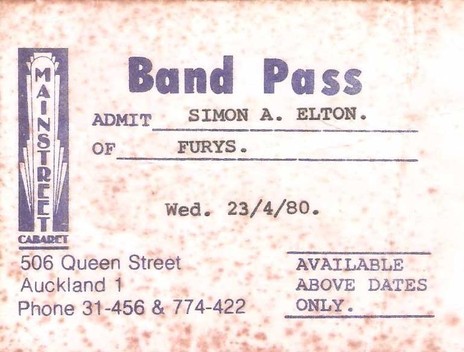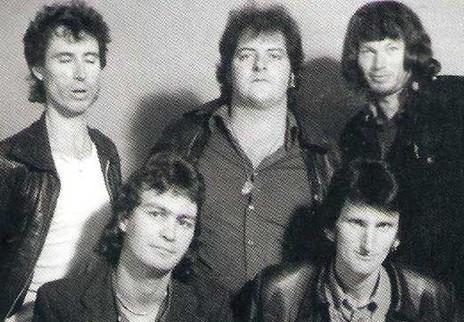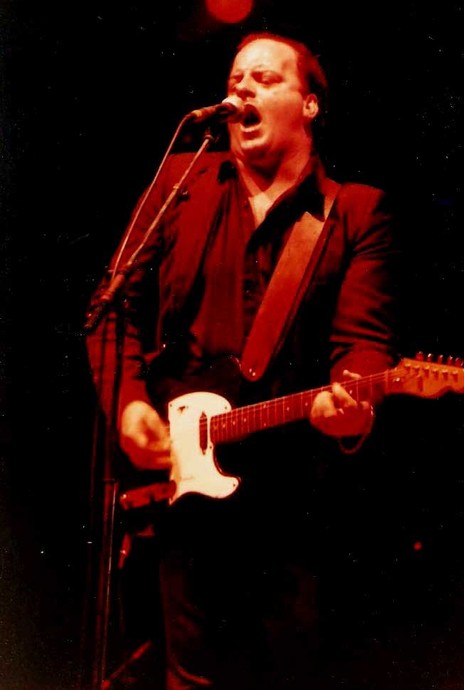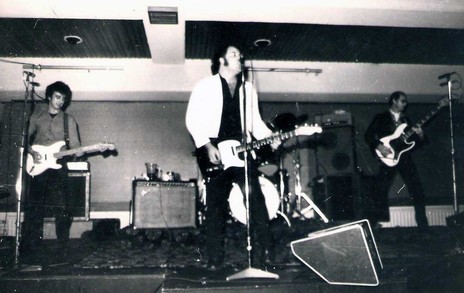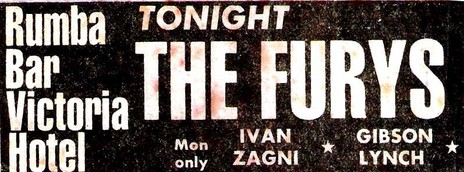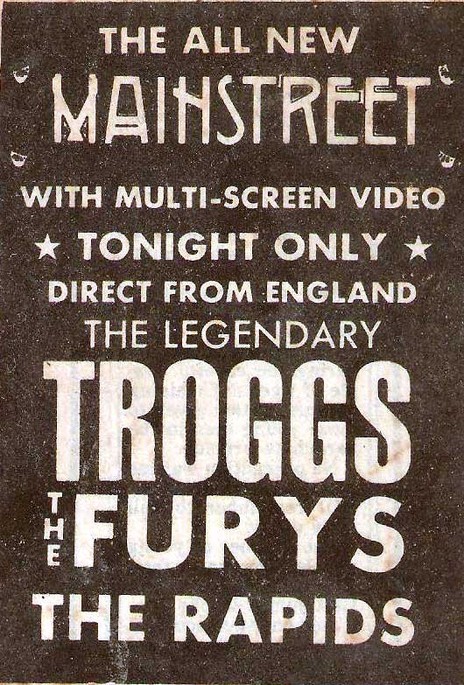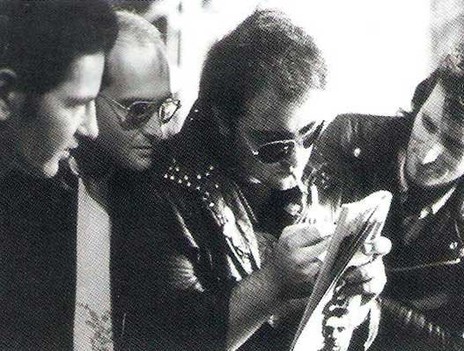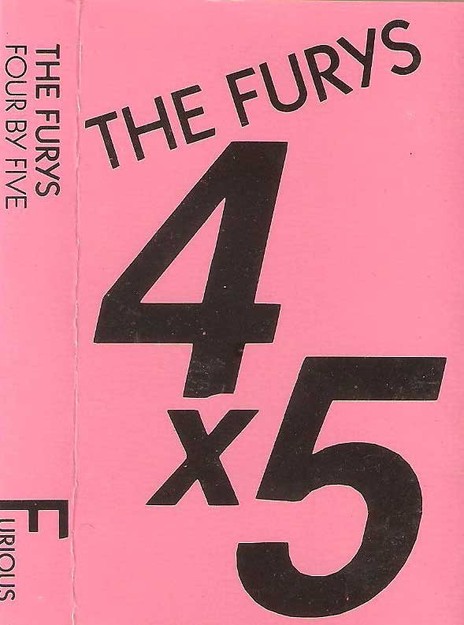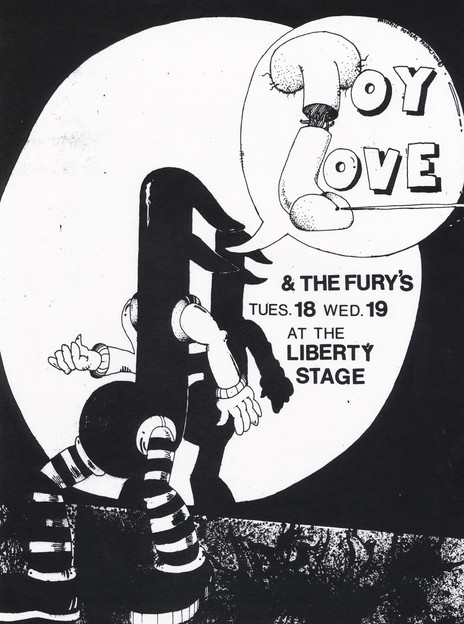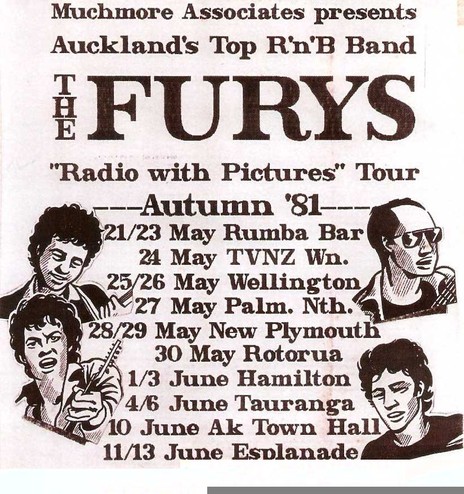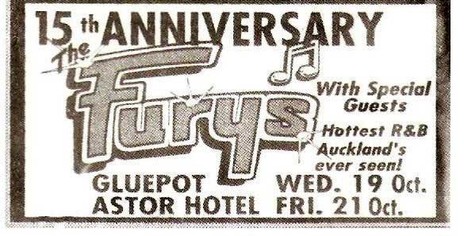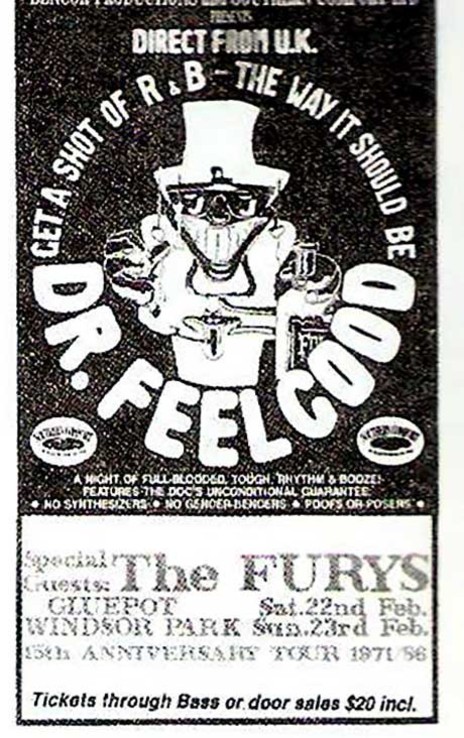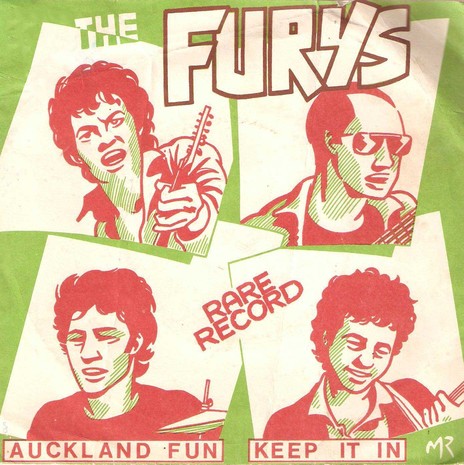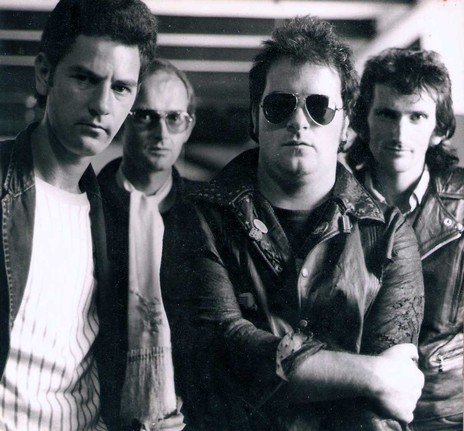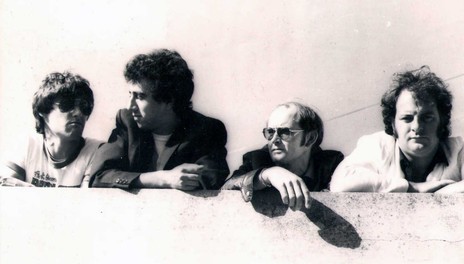Born in February 1957, the youngest of five, McLean took up guitar in the early 1970s. Always an unlikely candidate for a rock and roll star, stardom passed him by, but he gained an avid following of misfits for his rough-hewn R&B band, The Furys. “Never perfect but the better for it,” ran one of their promo lines.
South Auckland may have been McLean’s ‘hood but his first public performances were at a brief residency at the Kaiwaka Hotel, almost 100kms north of the city (“I think we got paid $10 between us.”). The band didn’t have a name that he can remember but in 1977 McLean and two of the members – singer Paul Andrews and drummer John Gray, plus bassist Gilbert Virella (aka Joe Gill) and second guitarist Johnny Bachelor – became Johnny & The Hookers, a prototype for The Furys.
Johnny & The Hookers didn’t really fit in with the late-70s Auckland scene. Influenced by Dr Feelgood, the Hookers had one foot in the punk camp although McLean’s quiff and general demeanour belied that. With their leather jackets, T-shirts and jeans, the Hookers looked like a construction crew and appeared to be pissed most of the time, and none more so than McLean.
Early gigs at the Headquarters Café in Upper Queen Street toughened up the band’s sound and by 1979 they were treading the Auckland traps – the Globe, Island Of Real, The Windsor Castle. It was at the Windsor for a series of Sunday afternoon gigs double-billed with Toy Love where the Hookers’ standing picked up. The punks loved them!
“I suppose we adopted some of that punk attitude,” McLean says, “or at least I did. Mind you, I was never one to pose at parties, I don’t like people much so it was easy to spit in someone’s face. The Hookers was fun for a while but it got to where I couldn’t stand it anymore, I didn’t like the music and everyone hated each other, well everyone hated me.” In June 1979, mid-gig at The Gluepot, McLean walked out on the band.
In October 1979 The Furys started playing around Auckland with a line-up featuring guitarist Mike Cooney, an old friend, John Berkley (who didn’t stick around long before serving time as Herbs’ original bassist) and ex-Hooker John Gray on drums.
Largely through RipItUp, the Hookers had created some interest outside Auckland and McLean decided to take his new band on a South Island tour, organised by the fledgling New Music Management. The tour was due to kick off just weeks after the band’s first Auckland gigs but when Berkley bailed McLean needed a bass player.
The Hookers, meanwhile, were in disarray in Sydney. Offering Joe Gill the bassist position, McLean also inherited Paul Andrews. The Furys line-up which headed down south featured no fewer than four ex-Hookers, plus Cooney. The tour wasn’t a great success (cold sausage rolls for Xmas dinner in Timaru) and by the time they returned to Auckland in February, the old hostilities were to the fore. Only McLean and Cooney remained.
The line-up’s final performance, at Mainstreet Cabaret, was on a bill which also featured Madam Rouge, themselves about to disband. The Furys inherited bassist Simon Elton, who was to become McLean’s most loyal sideman in the coming years. The drum seat was taken by Steve Butler, ex-Street Talk.
Managed by Charley Gray, The Furys played all the major Auckland venues and undertook regular mini-tours – Taranaki, Hawke’s Bay, Northland; they were particularly popular in Hamilton. A new Auckland venue, the Rumba Bar in Victoria Street, became the Furys’ second home.
Stability wasn’t to be a factor of The Furys. In the first year alone, Cooney left to form Billy & The Blue Flames, replaced by Rob Galley, and Butler was replaced by Robbie Peters. They recorded at Harlequin Studios, produced by Ian Morris and later, Paul Streekstra; a demo of ‘Auckland Fun’, an early McLean original, was delivered to Radio B (now 95bFM), receiving maximum airplay. Ian Morris sang the band’s praises and McLean’s stage antics ensured regular write-ups; they played the Nambassa Festival and the Greenpeace fundraisers, appeared on Radio With Pictures and toured with Dave McArtney & The Pink Flamingos. The Furys seemed to be on the verge of a breakthrough. It never happened.
Charley Gray was unable to interest a record company and formed his own label, Muchmore Records, to release the band’s four-track EP, Rare Record, released in October 1981, over a year after the initial recording sessions. Reviews were great, sales not so great. The Furys’ reputation was to remain largely as a pub band.
Now married, McLean went off the idea of touring. One-week stabs at other North Island regions were okay but the national grind didn’t appeal. From this point on, The Fury’s performances were to be intermittent. Band members picked up other gigs, line-up changes continued. Some opportunities were too good to knock back – supporting The Troggs for two nights and appearing at a private Mainstreet party for the Highway 61 Motorcycle Club.
“I’d sort of grown sick of it, the apathy, although that was down to us as much as anything, and the rise of the new romantics, god forbid. I was wondering what part I had to play.” There were recording sessions at Azimuth and Montage studios but only a second EP, 4 x 5, saw release.
Having been largely quiet for a couple of years, in 1985 The Furys secured a residency at West Auckland’s Westward Ho Tavern. The line-up featured McLean and Elton, plus guitarist Steve Hubbard and keyboardist Dave Curtis; Steve Butler was back on the drum seat. “It was bloody good money,” McLean remembers, “and it was three or four nights a week. We tore the place down and had some great nights, which led to us getting ideas above our station and we started doing other gigs, competing in the market again, trips to Hamilton, back in the game.”
It didn’t last, although three nights supporting Dr Feelgood in 1986 was a career highlight.
In 1988 Dave McLean, the hell-raiser himself, became an unlikely born-again Christian. “I’d realised by then that I was never gonna be a star. What the fuck, I was a short, fat balding old fart. So I joined the church and it was during those years when my songwriting improved. Later, when I started writing secular songs, there was a strong country blues feel to them.”
McLean’s time in the church lasted “four or five years” and, typically, it was that staunch attitude which led to his departure. “Oh, there was a dispute and, well, I took the sinner’s side over the saint’s.”
In the years since, McLean has performed sporadically – in duos with Dave Curtis and John Kempt, and a stint with sixties retro band The Kingpins. He’s held the same 9 to 5 job for over 20 years, kids have grown, he lives on a lifestyle block at Manukau Heads. There have been occasional reformations of The Furys but McLean is dismissive. “I get a hankering to pick up the guitar for a tutu now and then but who would want to see a bald tosser like me? I don’t think you can be cynical enough, John.”
--
In 2002 Simon Elton produced a CD, Anthology, comprising all of The Fury’s released output, plus demos and live recordings. Elton passed away in July 2021, from complications following an operation.
Dave McLean passed away suddenly on 25 December 2024.
